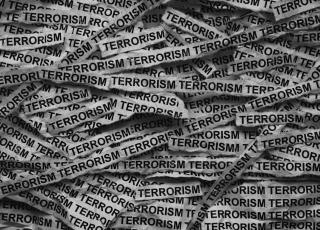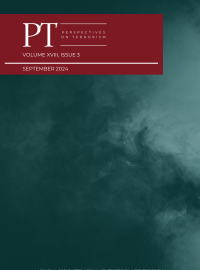

7 October, 2024
Webinar: Israel-Hamas War- One Year On
Hamas’ attack on Israel on 7 October 2023 has opened a new chapter in the Israeli-Palestinian conflict, changing geopolitical relationships and causing upheaval to the status quo in the region.
Our panel, providing expertise on the region and the broader geopolitical context, will tackle a wide range of questions relating to the war, including:
- What more can be done to prevent wider regional escalation?
- What is the likely trajectory over the next few months towards a durable ceasefire?
- What has been the UK’s response and what are the implications for Western interests in the Middle East?
- Is a viable diplomatic process towards a two-state solution possible?
Panellists:
- Dr Tobias Borck, Senior Associate Fellow, Middle East Security Studies, RUSI.
- Dr Talal Mohammad, Associate Fellow, Middle East Security Studies, RUSI.
- Michael Stephens, Associate Fellow, Middle East Security Studies, RUSI.
The webinar will be moderated by Dr Burcu Ozcelik, Senior Research Fellow, Middle East Security Studies, RUSI.
17 October, 2024
Terminology and why it matters
With Katy Brown (Maynooth University), Miranda Iossifidis (Newcastle University), George Newth (University of Bath) and Omran Shroufi (Vrije Universiteit Brussel).
This webinar will engage with issues of terminology and why they matter in understanding the resurgence of far-right politics. In particular, speakers will discuss issues of definitions, euphemisation and mainstreaming. A particular focus will be placed on the role we play as researchers in either combatting or legitimising the far right through our work. It will be moderated by Aurelien Mondon.
21 November, 2024
Researching the far-right: positionality, standpoint, and intersectionality
Podcasts
NCITE Insights
A podcast produced by the National Counterterrorism Innovation, Technology, and Education Center, based at the University of Nebraska at Omaha (UNO). On NCITE Insights, host Erin Grace interviews leading experts in psychology, criminology, political science, and more to make sense of today’s headlines as they relate to terrorism and targeted violence.
18 - 20 September, 2024
Annual IDeaS Conference: Disinformation, Hate Speech, and Extremism Online
Natural disasters, elections, climate changes, insurrections, pandemics, and new technologies are rocking the world. People talk about events, both these massive ones and much smaller ones, online. Social media platforms, search engines and websites have become the window through which these events are viewed and interpreted. Those on social media seek and shape information, build and join communities, often with impacts in the physical world. One consequence is an online breeding ground for growing and disseminating disinformation, hate speech and extremism. In this conference we ask: How is this done? Who is doing it? Why is it being done? What are the social consequences? How can it be countered? IDeaS will host it's second hybrid conference on disinformation, hate speech, and extremism online in September 2024. This conference aims to advance the science of social-cybersecurity through research and applications in this area. We invite papers that address questions related to disinformation, hate speech and extremism on line. We are particularly interested in papers that touch on the role that disinformation, hate speech and extremism are playing in events such as the vaccine roll out, presidential elections around the world, civil conflict, and community resilience. Policy, empirical, qualitative, data science and simulation papers are of equal interest. The conference will include: invited panels, posters, and regular talks. There will also be the opportunity for those interested to demo their technologies.
8 - 9 October, 2024
UN International Conference on Victims of Terrorism
Building on the momentum created by the first United Nations Global Congress of Victims of Terrorism in 2022, the United Nations International Conference on Victims of Terrorism will be hosted by the Kingdom of Spain in the city of Vitoria-Gasteiz on 8-9 October 2024. The conference will bring together experts, practitioners, and stakeholders from diverse backgrounds. It aims to foster collaboration, inspire innovative solutions, and advocate for a holistic approach to addressing the needs of victims of terrorism while striving to build more peaceful and resilient societies globally.


